 QAIC’s Expressions: Art & Culture Talks are a recurring public creative dialogue that features a variety of personalities, artists, and creatives who have lived or worked in the Arab and Islamic Worlds and whose works were inspired and influenced by these cultures and people.
QAIC’s Expressions: Art & Culture Talks are a recurring public creative dialogue that features a variety of personalities, artists, and creatives who have lived or worked in the Arab and Islamic Worlds and whose works were inspired and influenced by these cultures and people.
As an art and culture talk, Expressions aims to highlight the intersections and cultural connections that tie the American, Qatari, and in general the people of the Arab and Islamic Worlds through the act of storytelling. Creatives and cultural experts are invited to speak about their unique endeavors and artistic work, showcasing how they were inspired by the Arab and Islamic Worlds as a region, culture, and society.
These talks – centered around topics such as filmmaking, literature, fashion design, music, etc. – serve as a platform for creatives to delve into presentations and conversations that express their artistic journey and/or experiences within the Arab and Islamic worlds.
The Expressions Art & Culture Talks series is made possible thanks to the generous support of

Thanks to your support, our programs continue to spark creativity and expression among all members of our community. Please consider making a donation to help us spread inspiration to new artists everywhere.

Our latest iteration of our Expressions Art & Culture Talks features Indian-American fashion designer, Naeem Khan. Khan, who has designed for the likes of Michelle Obama, Queen Noor of Jordan, and Taylor Swift among others, joined QAIC to discuss his journey as a designer & to share his views on contemporary fashion.
About Naeem Khan
Born and raised in Mumbai, Khan grew up in a world surrounded by culture, architecture, art, history and design. As a boy, he cultivated a vast knowledge of textiles under the watchful eyes of his grandfather and father, both of whom designed intricate clothing worn by Indian royal families. Khan ultimately moved to the United States as a teenager to become a designer and launched his career as an apprentice for legendary American designer Halston at the age of 20. During his time with Halston, he immersed himself in the ethos of modern restraint and learned the craft of draping and cutting fabric to create a clean, elegant and timeless silhouette. Khan eventually merged this design philosophy with the knowledge he gained from his family’s business to nurture his own unique style, and the Naeem Khan design aesthetic was born.
Khan launched his eponymous collection in 2003 and began selling at Bergdorf Goodman, Neiman Marcus and Saks Fifth Avenue. Since then his collections have adorned glamorous women around the world, including Beyoncé, Jennifer Lopez, Taylor Swift, Rachel McAdams, First Lady Michelle Obama, Queen Noor of Jordan, and the Duchess of Cambridge, Kate Middleton, among others. In 2008, he was inducted as a member of the prestigious Council of Fashion Designers of America and most recently launched the Naeem Khan Bridal collection in 2013. Today the Naeem Khan Ready-to-Wear and Bridal collections are sold at more than 150 retail outlets across the world.

In partnership with the Reed Society for the Sacred Arts, QAIC had the privilege to sit down with American master calligrapher Mohamed Zakariya to learn about his early beginnings as a calligrapher, his personal journey with the Islamic faith and its traditions, and how as a teacher he was able to inspire a whole new generation of master calligraphers throughout the world.
Hosted by QAIC’s Executive Director Fatima Al-Dosari, join us as we explore Mohamed Zakariya’s evolution into one of the world’s most renowned Islamic calligraphers today and tour many of the works inspired by his unwavering dedication to the craft.
About Mohamed Zakariya
A man of varied interests, his work and studies took him to Morocco, Europe, and England, where he studied Islamic manuscripts at the British Museum. In 1984 Zakariya went to Istanbul at the invitation of the Research Center for Islamic History, Art, and Culture to study Arabic-script calligraphy with two Turkish masters. He subsequently received icazets in Sulus/Nesih scripts from Hasan Celebi, in 1988, and in Talik script from the late Ali Alparslan, in 1997.
Since then, he has pursued the calligraphic life at home and abroad, concentrating primarily on calligraphy in classical Arabic and Ottoman Turkish. He has had numerous exhibitions and fulfilled many commissions and teaches the art to a circle of serious students. From 2004 to 2012, Zakariya was a member of the Joint Advisory Board, Virginia Commonwealth University School of the Arts in Qatar. He was awarded an Honorary Doctorate of Humane Letters by the university in 2012. His work may be seen at www.MohamedZakariya.org

The first Expressions Art & Culture Talk of 2022 features some of the artists participating in the “Ruwad: Pioneering Contemporary Arts of Qatar” exhibition. Hosted in partnership with the al markhiya gallery in Doha, “The Contemporary Art Scene in Doha” will provide audiences an inside look at the current art scene in Doha from the perspective of four of the artists currently on display at the QAIC headquarters.
About “Ruwad”
Ruwad, which means “pioneers” in Arabic, is a celebration of both established and emerging Qatar-based artists who are transforming the artistic landscape in the Gulf region. The program, launched in 2018, aims to present the leading visionary minds of Qatar, whose creative works continue to inspire and promote the cultural richness of the region. To further promote and collaborate on artistic exchanges and cultural activities, Ruwad 2021-2022 is presented in collaboration with the al markhiya gallery in Qatar. al markhiya promotes and represents a distinctive group of emerging and recognized Arab artists in Qatar, the region, and throughout the world. The four artists on display are Sarah Al Ansari, Mubarak Al Malik, Fatima Al Mohammed, and Ebtissam Al Saffar.

To explore the shortage of horror films in Middle Eastern cinema, we spoke with Anvari himself in the most recent episode of QAIC’s Expressions Art & Culture Talks series. We spoke about creating a horror movie from a Middle Eastern perspective and the sources behind his inspiration when creating “Under the Shadow.”
About Babak Anvari
Babak Anvari is a British-Iranian filmmaker. He is best known for directing horror films such as Under the Shadow (2016) and Wounds (2019). Under The Shadow premiered at the Sundance Film Festival and will open in the UK via Vertigo Releasing on September 23. XYZ Films and Vertical Entertainment currently distribute the film in the US on October 7 and also release it across global digital platforms. Netflix holds worldwide streaming rights. Narges Rashidi, Avin Manshadi, and Bobby Naderi star in the film, which takes place in 1988 during the Iran-Iraq War as a woman and her child are tormented by a malign presence in their deserted apartment building.

On August 24, renowned American photographer Wendy Ewald joined QAIC for its Expressions Art & Culture Talks. During this webinar, Ms. Ewald spoke on her overall work, her travels throughout the greater Middle East and the Arabian Gulf, as well as her photographic projects from Morocco, Saudi Arabia, and the Arabic Alphabet in New York.
About Wendy Ewald
For over forty years, Wendy Ewald has collaborated on photography projects with children, families, women, workers, and teachers. She has worked in the United States, Labrador, Colombia, India, South Africa, Saudi Arabia, Holland, Mexico, and Tanzania. Her projects start as documentary investigations and move on to probe questions of identity and cultural differences.
She has also created many projects with students from elementary school through college. The projects are designed as interventions as well as artistic projects. Among them are American Alphabets, a series of photo installations made with Arabic, Spanish and English speakers; On Reading, a video installation with learning disabled students, and Who Am I in This Picture, a public art installation with faculty, staff, and students at Amherst College.
Wendy Ewald is a Guggenheim Fellowship recipient, academic, and was most recently an Artist-in-Residence at Amherst college.

On July 29th, QAIC hosted Egyptian writer and director Farida Zahran. The discussion spanned the past, present, and future of Arab cinema, both within the region and internationally. Employing Farida’s experience, insights, and perspectives as a filmmaker, QAIC hopes to share major changes within Arab cinema throughout the past century, as well as shine a spotlight on new talents and voices that are both creating authentic narratives and reshaping the distorted portrait of the Arab world in the West.
About Farida Zahran

Expressions Art & Culture Talks presents another exciting and engaging conversation with architectural writer, Michael Webb. In this edition of Expressions, author Michael Webb explores Msheireb, a new 77-acre urban development at the center of Doha, inspired by the vision of HH Sheikha Moza bint Nasser, and crafted by a team of architects, engineers, and landscape designers, serves as a modern interpretation of the traditional Arab city.
About Michael Webb

On January 22, QAIC held a captivating conversation with Qatari Filmmaker and artist, Khalifa Al-Thani. In this Expressions, Khalifa provides a unique look into working at the Doha Film Institute, behind the scenes of the Ajyal Film Festival, his experience as a filmmaker in both Qatar and the U.S., and his insight into the future of Arab cinema in the region and internationally.
About Khalifa Al-Thani
Khalifa Al-Thani is a Qatari filmmaker, curator, and visual artist who has worked on a variety of projects, ranging from films to art exhibitions. Khalifa’s work emphasizes an interdisciplinary exploration of Qatari and identity themes. Khalifa attained a BFA in Film and Video from the School of Visual Arts in New York City and is currently a part of the Film Training and Development team at the Doha Film Institute. In the last few years, he directed, wrote, and produced several films, most notably “A Tale of a Song” with Aljazeera Documentary. His most recent curatorial work, “Outbreak,” took place during the Ajyal Film Festival 2020. He is currently in the pre-production process of his film “Border.”

On December 17th, 2020, the Qatar America Institute for Culture hosted a webinar “Triangulating Arabic Script: History, Art, and Technology,” featuring author and Georgetown University professor Dr. J.R. Osborn. The conversation was moderated by QAIC’s Executive Director Fatima Al-Dosari. The conversation covered the history of Arabic script from its artistic roots in Arabic calligraphy to its incorporation into modern type within western technology.
About Dr. J.R. Osborn
J.R. Osborn is a scholar and experimentalist of communication. His work explores media history, design, semiotics, communication technologies, and aesthetics with a regional focus on the Middle East and Africa. Dr. Osborn is currently engaged in a number of research projects across a variety of media. Dr. Osborn also co-directs Georgetown’s Technology Design Studio. His courses frequently combine hands-on production projects with theoretical and traditional scholarship. In the past, Professor Osborn has taught and studied in Jordan, Yemen, Turkey, Mexico, Zimbabwe, the U.A.E, and Switzerland.

On December 11th, 2020, the Qatar America Institute for Culture hosted a webinar “Transcendent Text: Exploring Universal Values Through Islamic Text,” featuring renowned artist and sculptor Sabah Arbilli. The conversation was moderated by QAIC’s Executive Director Fatima Al-Dosari. The conversation covered Arbilli’s major influences in calligraphy, the meaning and significance of his work, and his overall approach to his craft.
About Sabah Arbilli
Born in Iraq, Sabah Arbilli earned a Master’s in Visual Arts from the University of Wales. He is currently based in the UK and Qatar, where he works as a full-time artist mainly working with Arabic calligraphy painted works and public art sculptures. Arbilli’s works can be found in the Middle East and internationally within many public and private collections and architectural buildings. His work was also selected as a permanent piece for the opening of the Islamic Museum of Australia and has his work exhibited within the United Nations. Arbilli’s work as an artist constantly develops both technique and style. He has exhibited internationally in both solo and group shows. His traditional calligraphy has won many prizes and has been invited as an expert advisor and consultant within the world of calligraphy. Arbilli’s work is created out of an urgency to communicate, trying to find the most cogent language through the use of the Arabic letters as an agent for allegorical narration. His work investigates but does not firmly establish, moral precepts.

On December 8th, 2020, the Qatar America Institute for Culture hosted a webinar “An Insiders look into the Past & Future of the Museum of Islamic Art,” featuring the director of the Museum of Islamic Art in Doha – Dr. Julia Gonnella. The conversation covered the construction and history of the museum as a cultural landmark within Qatar, the vast array of artifacts and exhibitions held by the museum, and Dr. Gonnella’s distinct vision as she leads the museum into the new decade as Qatar hosts the 2022 World Cu and the US-Qatar Year of Culture.
About Dr. Julia Gonnella
Dr. Julia Gonnella was previously the curator of the Museum of Islamic Art, run by the Pergamon Museum in Berlin, where she organized shows such as “Years of the Persian Book of Kings,” “Samarra – Centre of the World, 2012,” and “How Islamic Art Came to Berlin: The Collector and Museum Director Friedrich Sarre.” She is an archeologist with a background in social anthropology and Islamic studies. She has also conducted fieldwork in Al Bahnasa, Egypt, and Raqqa, Syria. She has also coordinated a joint German-Syrian effort to excavate the medieval Citadel of Aleppo between 1996 and 2011 and has been extensively published.

On February 29, 2020, the Qatar America Institute for Culture hosted “Fostering Multiculturalism in Film: Reflections & Lessons as a Film Professor in the Arab World,” featuring renowned filmmaker and Northwestern University professor Marco Williams at its Washington office. The program was moderated by Georgetown professor Michael Dyson, who serves as a regular commentator on National Public Radio, MSNBC, and CNN. Professor Williams discussed his teaching experience while at Northwestern University’s Qatar campus.
About Marco Williams
Overall, Marco Williams’ films and documentaries have focused on the harsh social, political and economic conditions that African Americans have faced in the United States. His unique ability to narrate and present these unfortunate truths to audiences have earned him visibility and many accolades. For instance, in 2007, Williams directed and produced Banished, a movie that documents African American descendants’ experiences as they return to their former homes from where their ancestors were once evicted. Banished was awarded the Knight Grand Jury Prize for Documentary Features at the Miami International Film Festival and Full Frame Documentary Festival Spectrum Award.
Most recently, Williams completed a documentary called The Undocumented – a PBS broadcast/ Independent Lens featured documentary that exposes the deaths of illegal immigrants as they attempt to enter the United States along Arizona’s border region.
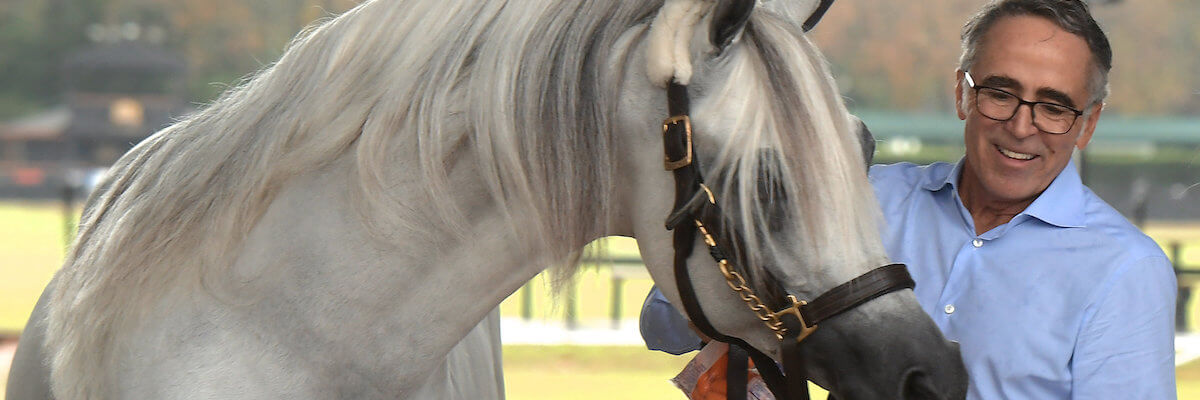
On January 28, 2020, the Qatar America Institute for Culture hosted Houstonian and renowned Arabian breeder, Michael Byatt, at the Houston Museum of Natural Science for a talk titled “The Arabian Horse: Lore & Legend.”
About Michael Byatt
Michael Byatt is an internationally known Arabian horse breeder and rider who helped develop the incomparable Arabians at Qatar’s Al Shaqab Equestrian Center, which has influenced breeding world-wide. Established in 1992, Al Shaqab has bred seven World Champion stallions, who have flown regularly between Qatar, Europe, and the United States, living for many years in New Ulm, Texas.
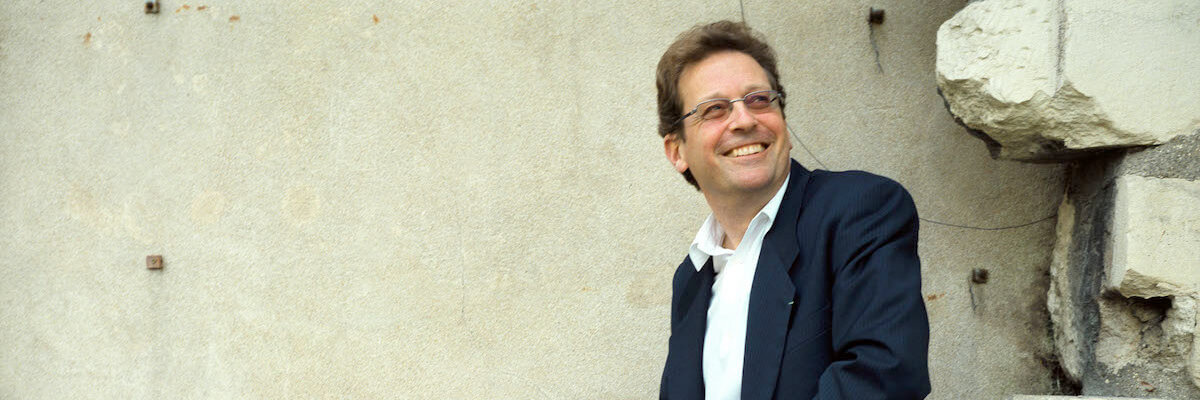
On June 17, 2019, the Qatar America Institute for Culture hosted architectural author Phillip Jodidio in Chicago for an Expressions Artist Talk centered around contemporary architecture in Qatar.
About Philip Jodidio
Philip Jodidio was born in Orange, New Jersey. He attended Harvard College (AB 1976) before moving to Paris where he became the Editor in Chief of Connaissance des Arts, the widest circulation art monthly in France. He remained there until 2002 when he moved to Lausanne, Switzerland. Philip Jodidio is the author of more than 100 books published by Taschen, Rizzoli, Thames & Hudson, Prestel and others.
His latest book on the new National Museum of Qatar was recently published by Thames & Hudson. Philip Jodidio has also worked extensively for the Aga Khan Trust for Culture in Geneva, editing five books about historic preservation work in Muslim cities such as Cairo and Kabul. The newest volume in this series, about Lahore, will be published by Prestel at the end of this year.
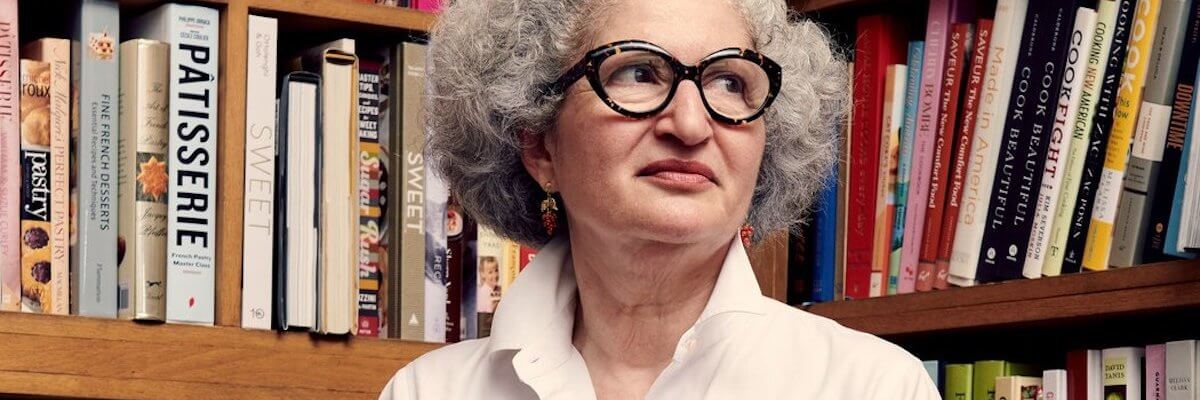
On October 22, 2018, the Qatar America Institute of Culture hosted chef and author Anissa Helou for its Expressions Artist Talk in Washington, DC. Ms. Helou spoke about the history and influences of Middle Eastern cuisine and foods from the rest of the Islamic World.
About Anissa Helou
Anissa Helou is a world-renowned chef, food writer, journalist, broadcaster, consultant and blogger focusing on the cuisines and culinary heritage of the Middle East, Mediterranean and North Africa. Ms. Helou is the author of numerous award-winning cookbooks with her first being “Lebanese Cuisine,” capturing her roots as the daughter of a Syrian father and Lebanese mother. In 2013, Anissa was featured in the Arabian Business Magazine’s list of “100 Most Powerful Arab Women” and on the “500 Most Influential Arabs.” Lebanese Cuisine was followed by Street Café Morocco, Mediterranean Street Food, The Fifth Quarter, and Modern Mezze. Her most recent publication, Feast: The Food of the Islamic World, was published to great acclaim by Ecco in May 2018.
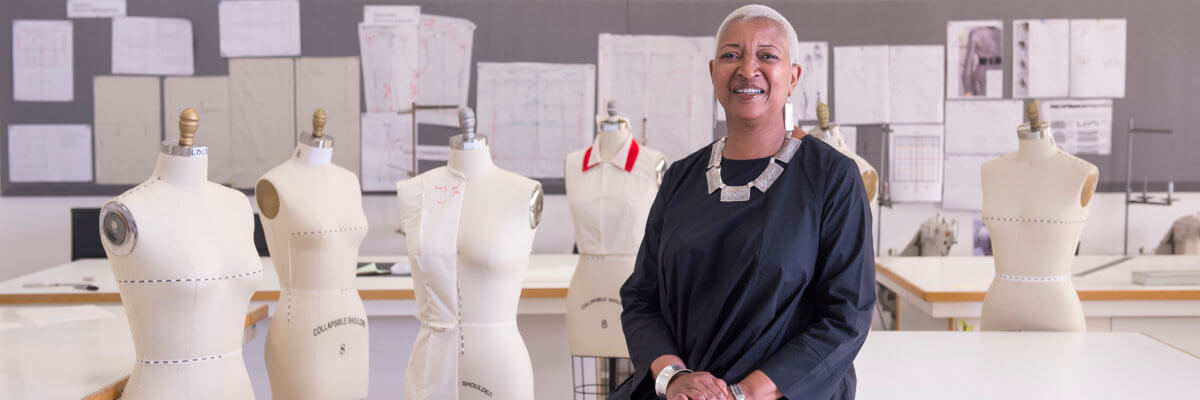
On September 18, 2018, the Qatar America Institute of Culture hosted the former chair of the Fashion Design department of Virginia Commonwealth University – Qatar (VCU-Q), Sandra Bell Wilkins, for a discussion on the history of fashion in the Middle East and the intersection between the functionality of fashion and regional culture. Ms. Wilkins also commented on her personal experiences teaching in Qatar, highlighting the various changes that Qatari society has experienced during her 20 years teaching at Education City.
About Sandra Bell Wilkins
Sandra Bell Wilkins has been creating clothing for profit since the age of nine. Fashion design was deemed a creative and lucrative hobby for a young woman, but everyone thought that music would provide a respectable future and it was music that provided a scholarship to University. When Sandra applied and ultimately arrived at University there was no question in her mind that Fashion was her ultimate passion. After graduation from VCU in 1968, she freelanced in LA and worked as a sales manager for Bullock’s of Southern California to pay the bills. In 1977 she returned to her alma mater as a full-time graduate and teaching assistant in the Theatre Department and in 1978b became a full-time instructor in the Department of Fashion, promoted to assistant professor in 1985 and tenured professor in 1992. In 1990 Sandra ended her part-time pursuits of a MFA in Costume Design with only 8 credits and a thesis in the way of completion but vowed to resume her studies soon.
In 1992 she was named interim chair of the VCU Fashion Department and remained in that position until 1996. It was that same year that Sandra traveled to Zimbabwe on a USAID grant to teach, consult and develop Fashion Programs for technical schools in Southern Africa, and in the fall semester of 1999 traveled to Qatar to head the Fashion program in the Shaqab College of Design Arts. In 2002 Shaqab College officially became VCUQatar and in 2005, Sandra became the Chair of the Fashion Department.
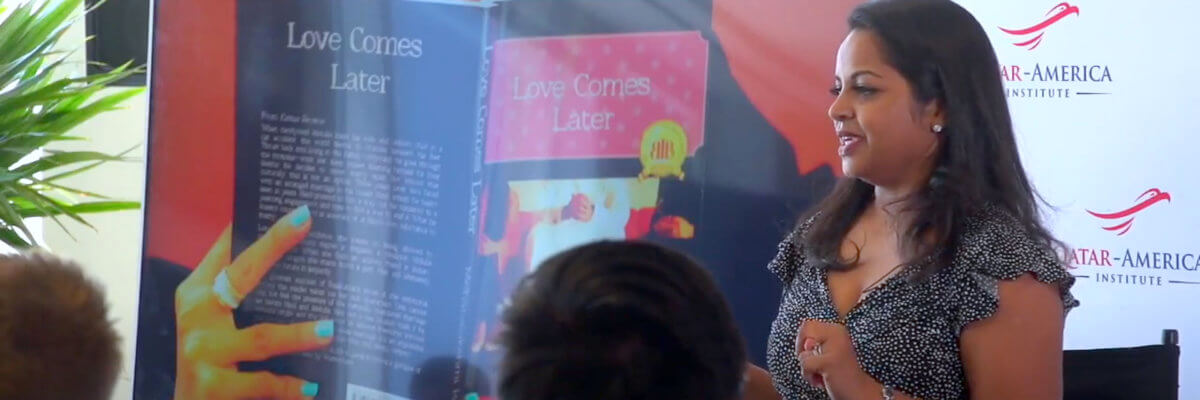
On July 18, 2018, the Qatar America Institute for Culture hosted Dr. Mohana Rajakumar for a talk on life as an American writer living in Qatar, how she went from being an academic to a writer, and what it is like to write romance novels in the Middle East. From authors to filmmakers, Arabian-horse breeders to modern art curators, the Expressions series is a mosaic of American creatives whose works are influenced and inspired by the state of Qatar.
About Mohana Rajakumar
Mohanalakshmi Rajakumar is a South Asian American who has lived in Qatar since 2005. Moving to the Arabian Desert was fortuitous in many ways since this is where she met her husband, had two sons, and became a writer. She has since published eight e-books, including a memoir for first time mothers, Mommy But Still Me; a guide for aspiring writers, So You Want to Sell a Million Copies; a short story collection, Coloured and Other Stories; and a novel about women’s friendships, Saving Peace.
Her coming of age novel, An Unlikely Goddess, won the SheWrites New Novelist competition in 2011.
Her recent books have focused on various aspects of life in Qatar. From Dunes to Dior, named as a Best Indie book in 2013, is a collection of essays related to her experiences as a female South Asian American living in the Arabian Gulf. Love Comes Later was the winner of the Best Indie Book Award for Romance in 2013 and is a literary romance set in Qatar and London. The Domestics is an inside look into compound life, the day-to-day dynamics between housemaids and their employers.
